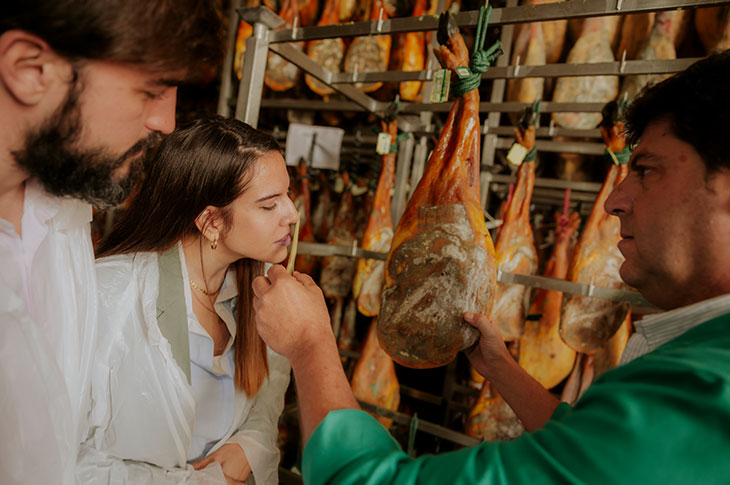Extremadura Gourmet: flavors to explore, experience, and savor
Three routes to uncover Extremadura’s soul through cheese, ham, and olive oil
Extremadura is a must-visit destination for those looking for something more than just mouth-watering food: its three sustainable gastronomic routes whisk travelers off on a journey through its history, landscapes, and culture. Dreamed up as product clubs, these experiences give visitors the opportunity to discover the origins and craftsmanship behind some of the region’s culinary treasures, take part in unforgettable activities, and set off on routes that connect the rural spirit with quality tourism. Extremadura Cheese Route. The route winds its way through iconic landscapes in the provinces of Cáceres and Badajoz, linking regions that have their own Designation of Origin (D.O.). Home to protected cheeses such as Torta del Casar, La Serena, Ibores, and Acehúche, not to mention a host of other cheese-producing regions with their own unique identities. Along the way you will stop off at cheese dairies and museums, as well as workshops to learn how to be a shepherd or become a cheesemaker for the day, strolls through (dehesas) pastures, not to mention guided tastings, all designed with a range of audiences in mind and rooted in a living tradition with deep connections to extensive livestock farming and the landscapes of Extremadura. Iberian “Extremadura Pastures” Route. A more immersive experience that showcases the ecosystem of the dehesa, native breeds, and the traditional processes behind Iberian products protected by the D.O.P. Extremadura Pasture. This route offers more than 20 experiences ranging from farm safaris to ham slicing masterclasses, stargazing between oak trees, and wine pairings. In this way ham becomes an ambassador for a way of life.

Extremadura Olive Oil Route. Extra virgin olive oil and traditional olive groves are at the heart of this route, weaving through the unique landscapes between Cáceres and Badajoz. Visitors can explore modern oil mills and ancient presses, take part in tastings, produce their own olive oil, or even set sail on an interpretive cruise with onboard tasting experiences. The experience is rounded off with a visit to the oleoteca de Cáceres (olive oil tasting), local cuisine, and even hands-on participation in the olive harvest.

